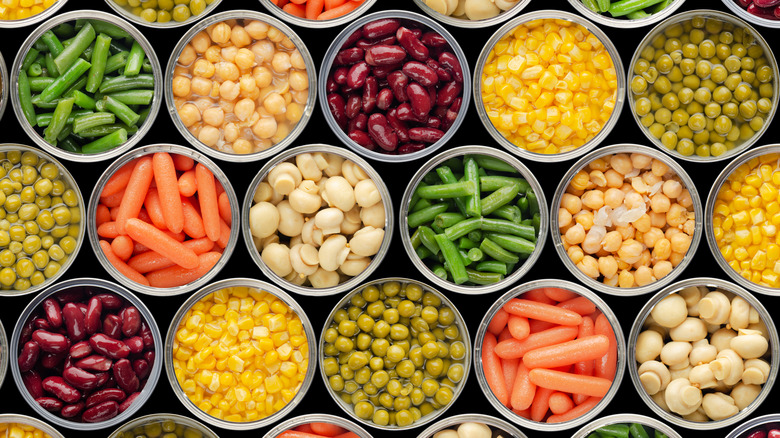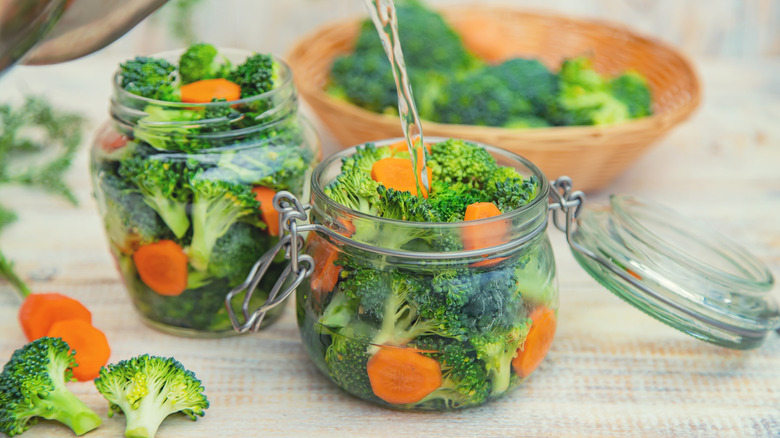How Come You Can't Buy Canned Broccoli Anywhere?
When you stock up on canned goods, maybe you've noticed that while you can get peas, corn, and just about any kind of bean, there's never any canned broccoli. Even with broccoli being a popular vegetable, its home will never be in the canned foods section. If you do ever happen to stumble upon it, broccoli is one canned food you should avoid at all costs. This isn't because the tree-shaped veggie wouldn't survive the process of canning — but just because it technically can be canned doesn't mean it should be.
When you preserve vegetables by canning, they need to be heated to a temperature hot enough to kill any microorganisms. Then, in the canning process, foods are heated to extreme temperatures once more to seal the container. When poor broccoli is subjected to that amount of high heat and moisture, it turns into a mush that resembles something that belongs in a "Goosebumps" book rather than an appetizing side dish.
If you could get past the texture of canned broccoli, you'd still be immensely let down by the new color, flavor, and smell. The canning process causes the broccoli to become discolored, changes the taste, and gives the vegetable an unpleasant odor. On top of all that, broccoli on its own is challenging to can safely because of the low levels of acid. This is why broccoli and other vegetables in the cruciferous family, like cauliflower and cabbage, aren't recommended for canning. For veggies like broccoli, you're better off finding another way to preserve them.
Choose frozen or pickled broccoli instead
Don't let the lack of canned broccoli steer you away from the vegetable altogether if you're not eating it fresh. Prepackaged frozen broccoli is often a cost-effective way to keep a backstock of the veggie. The nutrient difference is very minimal between fresh and frozen; just make sure to double-check for additives like sugar and salt since some broccoli might also be frozen in a sauce or seasoning blend.
Of course, fresh broccoli is also delicious. The best way to store fresh broccoli is in the crisper drawer of your fridge. However, if you're struggling to finish it and want to keep it for longer, you can freeze it. To do this, cut the head into florets, blanch them, and then dry them completely. Once dry, lay the florets on a sheet pan in a single layer and put the pan in the freezer for several hours. Once frozen, transfer the florets to a freezer bag or an airtight container. Make sure you write the date somewhere on the container, and note that frozen broccoli will maintain its quality for up to 12 months.
You can also opt to pickle broccoli. Pickling preserves vegetables by using a vinegar-based brine to prevent spoilage. The brine includes vinegar, water, and salt, and the appropriate ratio depends on the size of your container and the amount of broccoli you're preserving. Once you've created the perfect brine, you can experiment with different flavors by adding ingredients like mustard seeds and red pepper flakes. When properly canned in sanitized, airtight jars and stored in a cool, dry place, pickled broccoli can last for up to one year. Unlike shelf-stable pickles, refrigerated pickled broccoli will keep for about one month.

